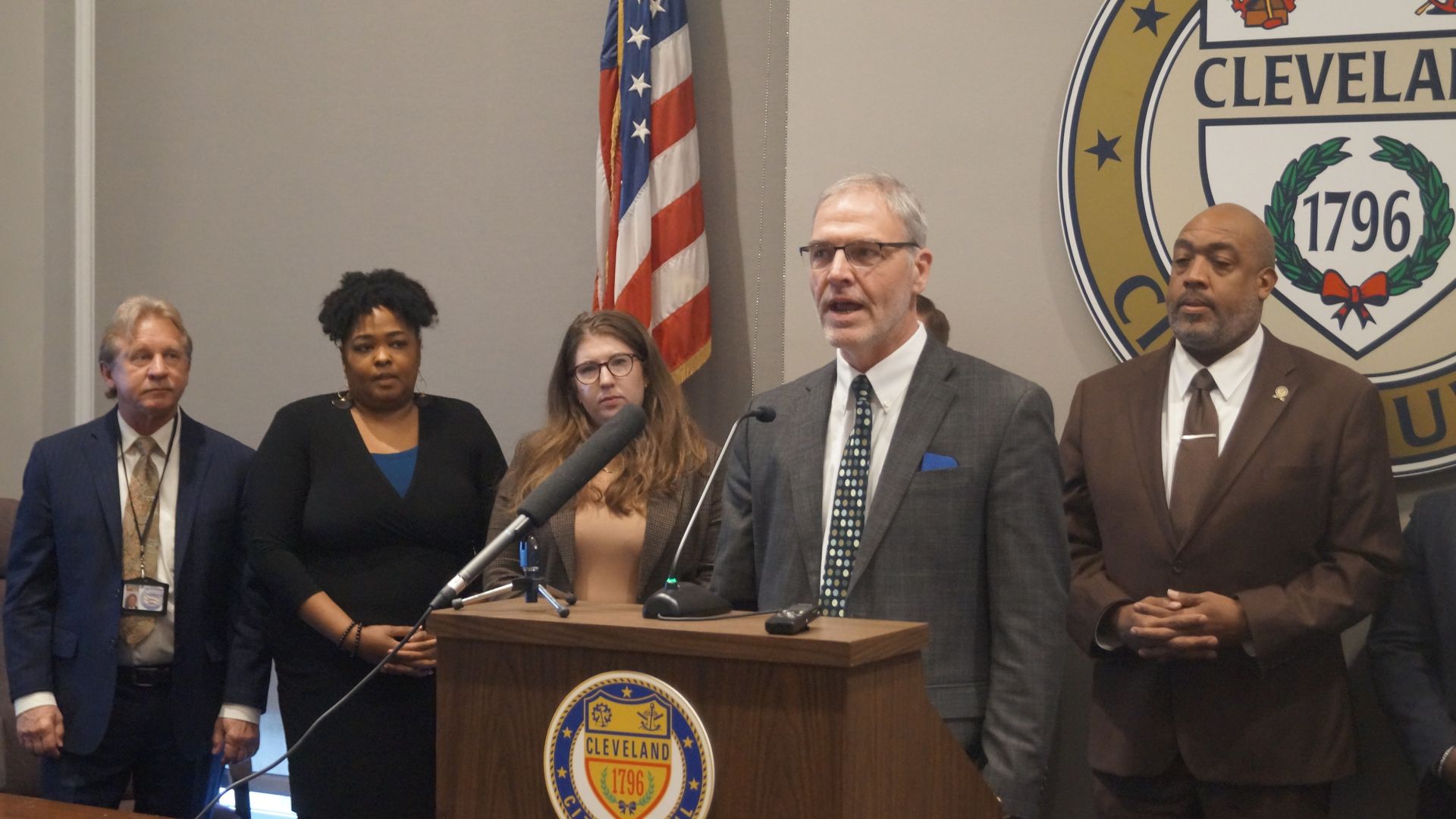Apr 25, 2023 - Politics
Cleveland, feds will erase nearly $190M in medical debt
Add Axios as your preferred source to
see more of our stories on Google.

Councilman Kris Harsh, surrounded by his colleagues, says the U.S. should treat health care as a human right. Photo: Sam Allard/Axios
